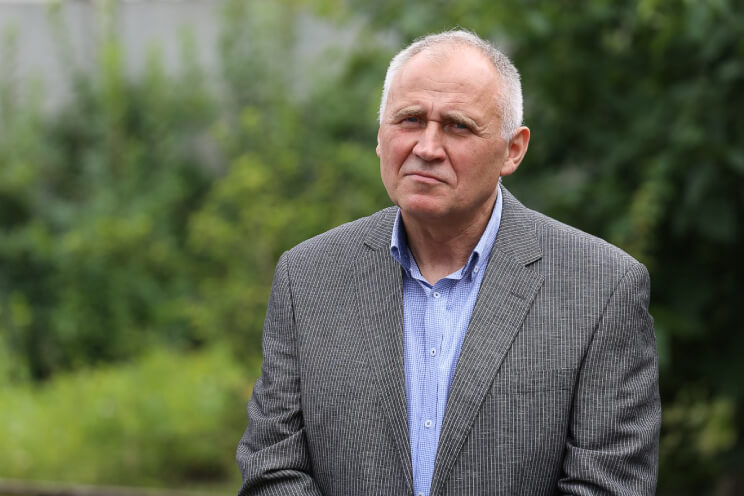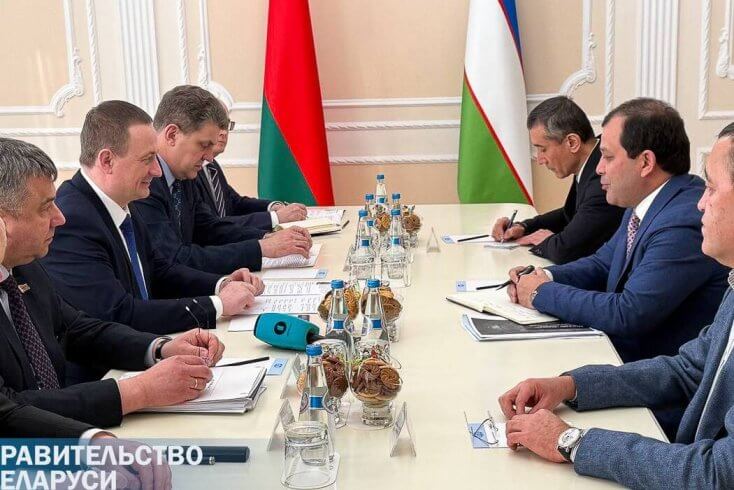Belarus frees more than 50 political prisoners

September 11, Pozirk. After today’s meeting with John Coale, US deputy special envoy to Ukraine, Alaksandar Łukašenka has pardoned more than 50 political prisoners.
The Belarusian ruler’s press office said that Łukašenka pardoned “a number of foreign nationals convicted of spying, participation in extremist and terrorist activities and . . . other crimes,” noting that he did so at the US president’s request.
Those pardoned include 14 foreigners, including six Lithuanians, two Latvians, two Poles, two Germans, one French and one Briton.
Lithuanian President Gitanas Nausėda said on X that Minsk had released and sent to Lithuania 52 political prisoners.
The Viasna Human Rights Center said that veteran opposition politician Mikałaj Statkievič is among those freed.
Washington is lifting sanctions on Belarus’ Biełavia airline, Coale said.
Pul Pervogo, a Telegram channel run by the Belarusian ruler’s press office, has published footage from the meeting.
Łukašenka credited Donald Trump with ending “seven-six wars or conflicts—it doesn’t matter,” urging the US president not to give up on his peace efforts, “especially here in the region in the conflict of Russia and Ukraine.”
“Naturally, we have a great interest in your global country in terms of the economy,” the Belarusian strongman added.
Coale read out the US president’s and his wife Melania Trump’s birthday greetings to Łukašenka, noting that Donald Trump’s signature “Donald” is a special sign of friendship.
Also taking part in the meeting were Christopher Smith, deputy assistant secretary for Eastern Europe; Valancin Rybakoŭ, Belarus’ representative to the UN; and Committee for State Security (KGB) chief Ivan Tertel.
Earlier meetings between Łukašenka and US diplomats resulted in the release of several groups of political prisoners, including politician and influencer Siarhiej Cichanoŭski.
Trump expressed hope earlier this month that Belarus would free the 1,400–1,500 remaining “hostages.”
The Biełavia sanctions were imposed after Belarus’ secret services hijacked Ryanair Flight 4978. Agents cited a false bomb threat to divert the passenger aircraft to Minsk and arrest opposition journalist Raman Pratasievič.
The incident has not been properly investigated because Belarusian officials denied international experts access to key evidence and witnesses.
The International Civil Aviation Organization Council determined that the bomb threat against Ryanair Flight 4978 “was deliberately false and endangered its safety, and furthermore that the threat was communicated to the flight crew upon the instructions of senior government officials of Belarus.”
“As neither a bomb nor evidence of its existence was found during pre-departure screening in Athens, Greece, and after various searches of the aircraft in Belarus and Lithuania, it is considered that the bomb threat was deliberately false. Knowingly communicating false information which endangers the safety of an aircraft in flight is an offence under Article 1 (1) (e) of the Montréal Convention,” it said.
- EconomyPrime Minister Turčyn meets with Uzbek business delegationThe material is available only to POZIRK+
- Politics
- SocietyBelarus signs joint action plan with international Red CrossThe material is available only to POZIRK+
- Politics, SecurityUkraine, Russia swap prisoners via BelarusThe material is available only to POZIRK+
- Politics, SecurityOpposition politician Capkała in Washington proposes a “Venezuela” solution for BelarusThe material is available only to POZIRK+
- SocietyWomen dominate Belarus’ workforce with growing presence in ITThe material is available only to POZIRK+
- Economy
- Politics
- Politics, Society
- Security, SocietyBiełavija operating evacuation flights from DubaiThe material is available only to POZIRK+
- Politics
- Politics, SecurityPoland extends no-go zone at Belarus border for another 90 daysThe material is available only to POZIRK+
- EconomyRyžankoŭ seeks to boost Belarus-Ghana ties during two-day visitThe material is available only to POZIRK+
- PoliticsReprisals: dissident woman on non-custodial sentence diesThe material is available only to POZIRK+
- Politics
- PoliticsBelarus’ former presidential hopeful Capkała meets with US national security advisorThe material is available only to POZIRK+
- PoliticsEuropean Parliament hosts Belarus Cross-Party ForumThe material is available only to POZIRK+
- PoliticsKGB designates PEN Belarus as extremist groupThe material is available only to POZIRK+
- Society
- EconomyBelGee’s car sales up 41 percent, LADA down 13 percent in FebruaryThe material is available only to POZIRK+


